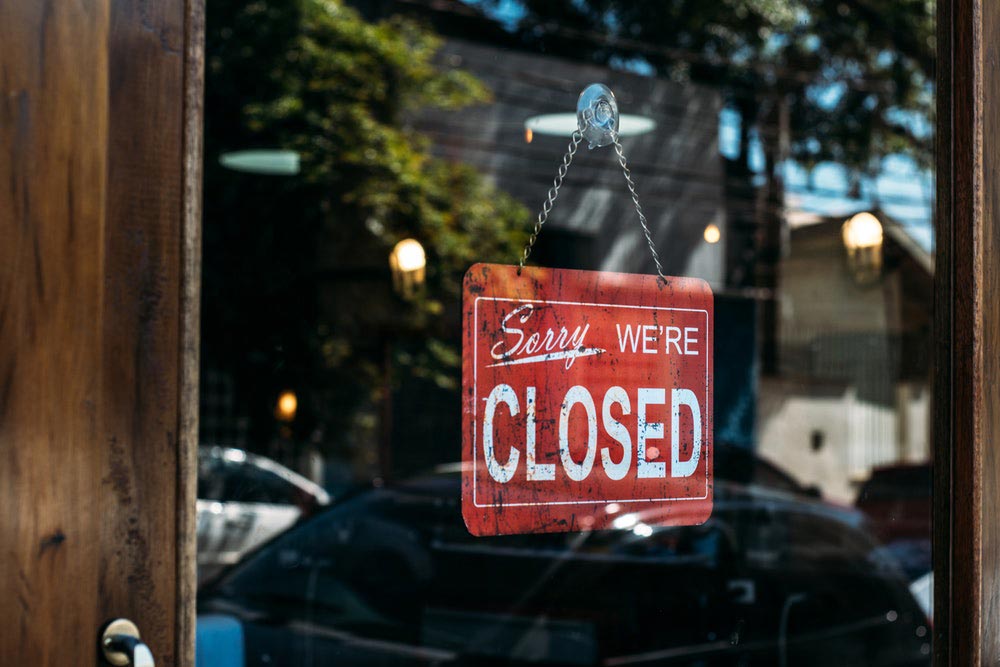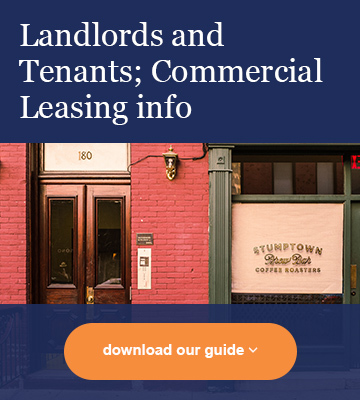
If you’re running a business, it would be difficult to imagine there has been a tougher time to do so than during the current COVID-19 pandemic.
Mass closures of both retail and other business premises due to the new rules around social distancing and group gatherings to stop the spread of the disease have presented commercial challenges few would have faced in their lifetimes.
In terms of commercial tenancy arrangements, just as there are new circumstances for landlords, as we detailed in another article, there are new ways for commercial tenants to hopefully survive the duration of the pandemic.
The Federal government has announced a suite of support measures aimed at allowing businesses to ‘hibernate’, and therefore survive, until rules around business closures can be relaxed.
Key among these are the JobKeeper benefits program and also a new Code of Conduct to guide landlords and tenants in discussions about rent reductions and abatements for as long as the safety measures last.
For those tenants who may not meet the criteria announced for these programs, this article also looks at your existing rights as a tenant.
What the government has announced to date
The JobKeeper payment announced in March 2020 will allow many commercial tenants to survive the pandemic by being able to claim a fortnightly payment of $1,500 per eligible employee from 30 March 2020, for a maximum period of six months. The payment can be accessed by businesses with a turnover of less than $1 billion who can show turnover has fallen by more than 30 per cent (of at least a month); or businesses with a turnover of $1 billion or more whose turnover has fallen by more than 50 per cent (of at least a month).
Eligible employees must have been in an employment relationship with their employer as at 1 March 2020.
The mandatory Code of Conduct for commercial tenancies announced in early April 2020 will be legislated by each state and territory and bind both landlords and tenants. It will apply to those tenants whose business turns over $50 million or less and are eligible for the JobKeeper program outlined above.
The Code sets out non-prescriptive recommendations that landlords not terminate leases at this time, nor draw on their tenants’ security. Tenants are encouraged to honour their leases, and work in hand with landlords to discuss reducing rent proportionate to the trading reduction experienced by the tenant’s business.
The government has suggested a waiver of rent for those who experience at least 50 per cent of a reduction in business, or deferral of rent that must be covered over the balance of the lease term, but for no less than 12 months.
Tenants of small to medium-sized businesses are encouraged to sit down with the landlord, perhaps in a mediation setting, to work through mutually satisfactory arrangements as an alternative to terminating the lease.
Force majeure clauses
Many businesses, of course, will not come under the criteria established for JobSeeker and the Code of Conduct for commercial tenancies, yet still be experiencing a severe downturn as a result of the pandemic.
These tenants may need to look to other legal avenues to protect their business, or escape the obligations of a lease they can no longer afford.
Depending on the wording of each individual lease, force majeure clauses – which deal with unforeseeable events that make performance of a contract impossible may apply for the benefit of commercial tenants in the face of the COVID-19 pandemic. A federal government declaration of a national emergency, for example, may trigger operation of this clause and allow a tenant to end the lease with the landlord.
Frustration
The doctrine of frustration at common law applies when a contract or lease cannot be completed due to unforeseen circumstances or an uncontrollable event. In this situation, the lease can be terminated and each party released from its obligations.
A tenant is unlikely to succeed in a claim based on frustration of the contract, however, if there is a force majeure clause in the contract that applies to the uncontrollable event; or the party is merely suffering an unforeseen loss or an increased burden for it to perform its obligations under the lease; or in the case of a delay in being able to perform an obligation under the contract (that is not an unreasonable delay).
The fact COVID-19 is still considered a temporary and transient event, and the restrictions it has necessitated will eventually end, may mean frustration of the lease will be difficult for a tenant to demonstrate. Again, the guidance of an expert commercial lawyer can help clarify whether frustration is available.
Where a tenant’s premises have been shut down because of a government directive to do so to prevent groups of people gathering, the tenant is unlikely to be able to claim against the landlord for a breach of the tenant’s right to “quiet enjoyment” of the premises. This is because the directive is beyond the control of both landlord and tenant, and must be complied with.
Rent refusal
A number of high-profile tenants, such as owner of multiple Australian retail stores Premier investments, have made public statements that they will stop paying rent during the pandemic. For those businesses outside of the ambit of government support, leases remain legally binding and failure to pay longer than 14 days after notice is provided allows the landlord to terminate the lease.
The reduced likelihood of a landlord finding a new tenant for the premises during this uncertain time means both parties are better off seeking an agreement to reduce or defer rent, while society remains largely shut down, so that the business can resume once the restrictions are lifted.
How we can help
If you are dealing with the stress and uncertainty caused by the COVID-19 pandemic, and are unsure of your rights and obligations under a commercial lease or whether you’re eligible for government support, please contact Delaney & Delaney for understanding, knowledgeable and relevant advice.
We have more than 100 years of experience advising on commercial lease arrangements and can help mediate any necessary discussion between tenant and landlord. Contact us today on (07) 3236 2604 for advice and guidance on COVID-19 related changes.

